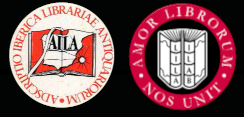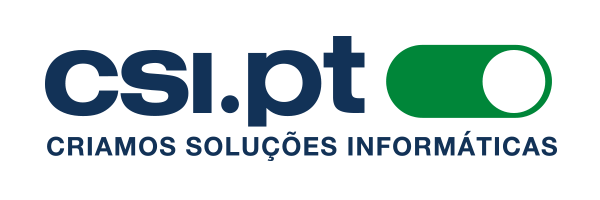


Home |
Temáticas |
Catálogos |
Pedidos |
  |  |
|||||||
|

|
RUGENDAS. (Johann Moritz) HABITANTE DE GOYAS, QUADRO A ÓLEO PINTADO SOBRE MADEIRA. |
|
|
Clique nas imagens para aumentar. MANUSCRITO EM PERGAMINHO SELADO - CERTIDÃO DA LICENÇA PARA O USO E PORTE DE ARMA (ESPINGARDA DE FECHOS DE PEDERNEIRA) - LISBOA. 16621 fólio em pergaminho de 34x43 cm. Com 24 linhas manuscritas a uma só mão, muito firme e legível. Fólio manuscrito do lado rugoso do pergaminho (sem conteúdo manuscrito do lado liso) e com quatro dobras consecutivas de forma a ser transportado como uma carta. Este pergaminho foi redigido sobre uma versão antiga do conhecido 'papel selado', pago previamente antes da sua escritura, e ao qual acrescem os emolumentos descritos no texto. Apresenta, no canto superior esquerdo, as armas do rei, a data e o valor no escudo, e também por extenso: «Sello primeiro de duzentos e quarenta R[eis]». Trata-se de uma raríssima autorização do tribunal superior da Corte de Lisboa para o uso e porte de uma espingarda com fechos de pederneira, assinado pelo Desembargador Doutor Miguel Zuzarte de Azevedo, Fidalgo da Casa Real, passada a Domingos Ferreira Soares, morador no Lugar de Arrencada, e proprietário fundiário. O documento foi redigido por André Dias (Escrivão do Crime da Corte na dita Casa da Suplicação) e manuscrito por Simão de Miranda em 21 de Outubro de 1662. Em termos históricos, podemos verificar que o recurso a armas era comum neste período conturbado. Em 1662 Portugal era governado pelo Rei D. Afonso VI e encontrava-se em guerra com Espanha. No território português encontrava-se o exército de Dom João de Áustria, enviado pelo seu pai o Rei Filipe IV de Espanha e o exército do Marechal Frederick Schomberg enviado por Carlos II de Inglaterra. A principal batalha da Guerra da Restauração - a batalha de Montes Claros - ainda viria a ocorrer no ano de 1665. No século XVI as armas comuns eram as espingardas, ditas arcabuzes, com um fecho de mecha, o qual tinha de ser antecipadamente aceso. Estas armas foram substituídas no século XVII pelas armas com fechos de pederneira, com o tiro sempre pronto e de ignição mais rápida, o que corresponde hoje em dia ao aparecimento das armas automáticas. O Lugar de Arrencada era, na altura, uma localidade com 230 fogos, na Beira, Bispado de Coimbra, Arcediagado do Vouga, Comarca de Esgueira, e Freguesia de São Pedro de Valongo, tendo como oragos Santo António e N. S. da Conceição. O autor da petição - Domingos Ferreyra Soares - não foi encontrado nas buscas que efectuámos, mas é claro pelo documento que seria um marchante, isto é, um comerciante de gado, que comprava e vendia reses por todas as principais feiras de gado do país, as quais se situavam muito distantes no sul, nomeadamente em Galrão, Santarém e Malveira, e por esse motivo necessitaria de uma arma para proteger a sua fazenda, isto é, as reses e o dinheiro realizado com o seu comércio. Transcrevemos em seguida o conteúdo do documento - uma Certidão da Licença de uso e porte de uma espingarda de fechos de pederneira - com a ortografia e a pontuação actualizadas: « Doutor Miguel Zuzarte de Azevedo, Fidalgo da Casa d’El-Rei Nosso Senhor e do seu Desembargo, Desembargador dos Agravos e Corregedor com Alçada dos Feitos e Causas Crimes em esta Sua Corte e Casa da Suplicação, etc. Faço saber a todos os Corregedores, Ouvidores, Juízes, Justiças, oficiais, e pessoas destes Reinos e Senhorios de Portugal a que esta minha Certidão for apresentada e dela se pedir cumprimento que Domingos Ferreira Soares, morador no Lugar da Arrencada, me enviou dizer por sua petição § Que ele tinha uma Quinta distante do dito Lugar aonde assistia o mais do ano, e tinha muitos Gados, e Terras que cultivava, fora outras que tinha em diversas partes, e porque ele, Suplicante, tinha Fazenda que valia mais de três mil Cruzados, e levava muitas Fazendas das Feiras deste Reino, e assim para guarda de sua fazenda e pessoa lhe [é] ora necessário uma espingarda de Caminho [sic] para se poder defender, e outra [alegada razão] sem guardar seus gados e Casa por estar em um Campo despovoado e não poderá ter a dita espingarda sem Licença minha, e por quanto ele Suplicante tinha arcabuz como mandava Sua Majestade. Me pedia que justificando o sobre dito mandasse passar a Licença que pedia para ter a dita espingarda, e receberia Justiça e Mercê; A qual petição sendo-me apresentada por meu despacho mandei Que [a] Justificasse, e por bem deste meu despacho Justificou o Suplicante o deduzido em sua petição com testemunhas, que perguntei judicialmente, e indo-me os autos conclusos, neles por minha sentença pronunciei o seguinte: § Vista a Justificação pode o Suplicante usar de espingarda de pederneira para o que se passe Certidão. Lisboa, vinte e um de Outubro mil e seiscentos e sessenta e dois. Azevedo. E por bem desta minha sentença, se passa a presente pela qual Requeiro a todas as sobre ditas Justiças que deixem ter, usar, e trazer ao Suplicante Domingos Ferreira Soares, espingarda de fechos de pederneira, por onde quer que for d’andar, sem que por isso lhe será feita moléstia, nem vexação alguma, nem lhe serão levados nenhuns encoutos, nem penas, etc. Dada nesta Corte e Cidade de Lisboa aos vinte e um dias do mês de Outubro de mil seiscentos e sessenta e dois anos, etc. André Dias que serve de escrivão do Crime da Corte, na dita Casa da Suplicação, no ofício de que é proprietário. Simão de Miranda a fez. Pagou-se de feitio desta [Certidão] cento e sessenta reis e de assinatura dela se pagaram já cem reis, e eu dito André Dias a fiz e escrevi ». [Assinado]: Miguel Zuzarte de Azevedo
1 folio in parchment (34x43 cm) with 24 handwritten lines by just one hand with steady and readable calligraphy. The folio is handwritten on the rough side of the parchment (with the smooth part in blank) and has 4 folds so it could be carried as a letter. This parchment was written on an old version of stamp impressed paper, which was paid before it was used, being later paid the due emoluments described on the text. It has on the left top corner the coat of arms of the King with the date and the value inside the shield, and also the amount in words: «Sello primeiro de duzentos e quarenta R[eis]» [First stamp of two hundred and forty R.]. This is a very rare licence of the High Court of Lisbon for using and carrying a flintlock rifle, signed by the judge Miguel Zuzarte de Azevedo, Noble of the Royal House, and granted to Domingos Ferreira Soares, living at the village of Arrencada and landowner. The document was worded by André Dias (Clerk of Crime at that Court) and handwritten by Simão de Miranda on the 21st of October, 1662. In historical terms, we can see that the use of arms was common in this troubled period. In 1662 Portugal was ruled by King Afonso VI and was at war with Spain. In the Portuguese territory there was the army of Dom João de Áustria, sent by his father King Filipe IV of Spain and the army of Marshal Frederick Schomberg sent by Charles II of England. The main battle of the War of Restoration - the battle of Montes Claros - would take place in 1665. In the 16th century the common weapons were the rifles, said to be arquebus or arquebusier, with a matchlock, which had to be ignited in advance. These weapons were replaced in the 17th century by weapons with flintlocks, with the firing always ready and faster ignition, which corresponds today to the appearance of automatic weapons. The place of Arrencada was, at the time, a locality with 230 dwellings, in Beira, Bishopric of Coimbra, archdeaconry of Vouga, District of Esgueira, and Parish of São Pedro de Valongo, with St. Anthony and Our Lady of the Conception as orages. The author of the petition - Domingos Ferreyra Soares - could not be found in our search, but it is clear from the document that he was a cattle trader, who bought and sold cattle at all the main cattle fairs in the country, which were located far away in the south, namely in Galrão, Santarém and Malveira, and therefore needed a weapon to protect his posessions, namely the cattle and the money made from his trade. Transcription of the contents of the document - a Certificate of Licence to use and carry a flintlock rifle - with the spelling and punctuation updated: « Doctor Miguel Zuzarte de Azevedo, nobleman of the House of Our Lord the King and of his Disembargo (supreme court of justice in Portugal at that period), Magistrate of the Appeals and Court Reprieve of the Judgements and Criminal Causes in this His Court and House of the Court of Appeal, etc. I make known to all the County Commissioners, Ombudsmen, Judges, Justices, officers, and people of these Kingdoms and Lordships of Portugal to whom this my Certificate is presented and of which compliance is requested that Domingos Ferreira Soares, resident in Arrencada, sent me to say by his petition § That he had a farm far from the said place where he spent the most part of the year, and had many cattle, and lands that he cultivated, besides others that he had in several parts, and because he, the Applicant, had na income worth more than three thousand Cruzados (currency of that period), and carried many of that income from the Fairs of this Kingdom, and so to guard his property and person he [is] now required a protection rifle to be able to defend himself, and another [alleged reason] without guarding his cattle and House for being in a depopulated Field and he cannot have the said rifle without my License, and for as much as he, the Applicant had a arquebus as His Majesty ordered. He asked me to justify the aforesaid, so that he could have the Licence he requested to have the said rifle, and he would receive Justice and Mercy; The said petition being presented to me to dispatch I ordered [it] Justified, and for the sake of this order Justified the Applicant the deduced in his petition, presented with witnesses, that I asked judicially, and going to the concluded records, in them by my sentence I pronounced the following: § Taken in consideration the justification the Applicant may use a flintlock rifle, for which purpose a Certificate is issued. Lisbon, twenty-first of October one thousand six hundred and sixty-two. Azevedo. And for the sake of this sentence of mine, I hereby request all the aforesaid Justices to allow the petitioner Domingos Ferreira Soares to have, use and bring a flintlock rifle wherever he may go, without any inconvenience or vexation being caused to him, nor will any charges or penalties be brought against him, etc. Dated at this Court and City of Lisbon, the twenty-first day of October, one thousand six hundred and sixty-two years, etc. André Dias who serves as Court clerk, in the said House of Appeal, in the office of which he is the proprietor. Simão de Miranda wrote it. This [Certificate] was paid one hundred and sixty reis (currency), and one hundred reis were paid for its signature, and I, André Dias, made and wrote it ». [Signed]: Miguel Zuzarte de Azevedo Referência: 1806JC006
Indisponível Caixa de sugestões A sua opinião é importante para nós. Se encontrou um preço incorrecto, um erro ou um problema técnico nesta página, por favor avise-nos. 
|
Pesquisa Simples




|
||
 |
|||
|